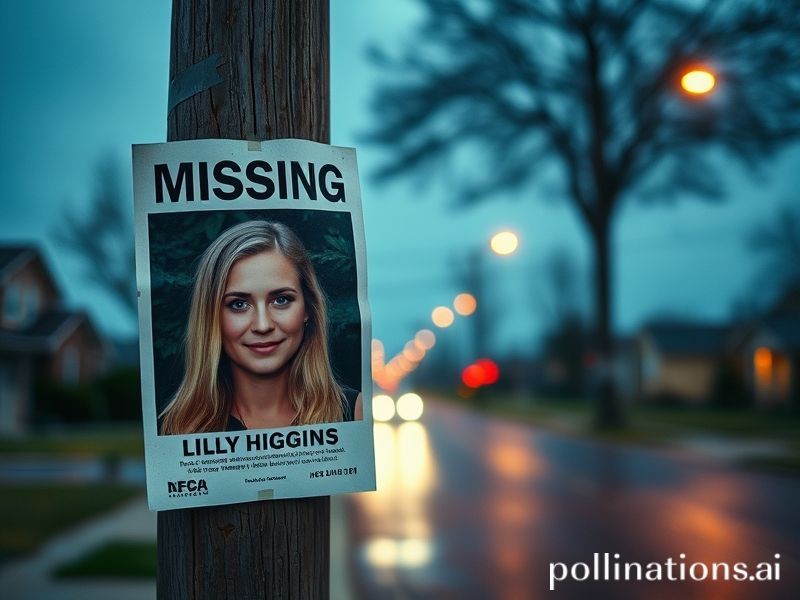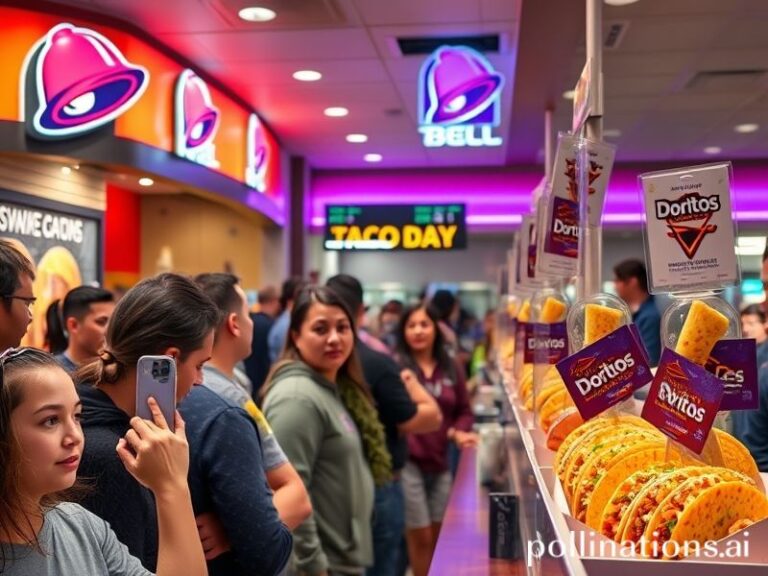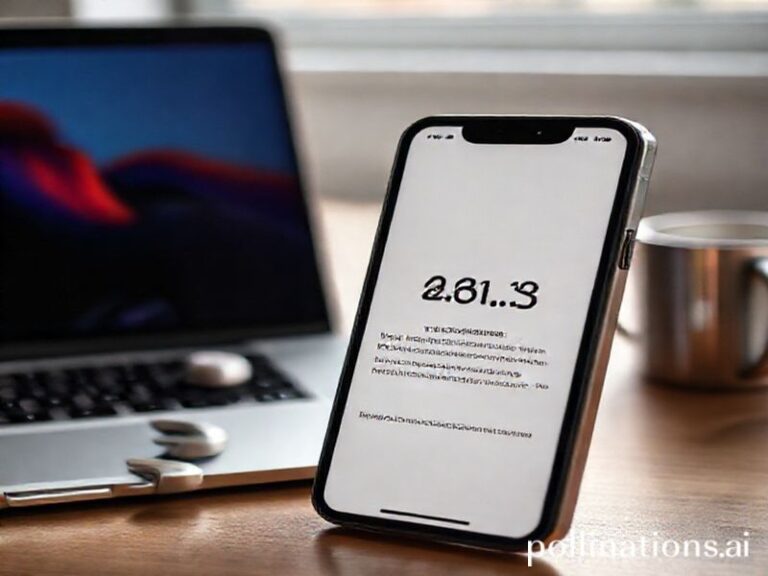When a Food Influencer Vanishes, the Whole World Gets Indigestion: Tracking the Global Frenzy Over Lilly Higgins
Somewhere between a viral TikTok dance and the latest cryptocurrency meltdown, the planet briefly paused to wonder where, exactly, Lilly Higgins went. The 29-year-old Irish food-blogger-turned-UNESCO-adjunct—famous for posting Michelin-grade colcannon while lecturing the Global South on sustainable quinoa—vanished last Tuesday from a boutique eco-lodge in southern Portugal. One moment she was livestreaming “zero-waste octopus,” the next the screen froze on a half-chopped tentacle and a caption reading “BRB, nature calls.” She never returned, and the Wi-Fi, tragically, remained strong.
International interest ignited faster than you can say “carbon offset.” Within hours, #FindLilly trended from Lagos to Lagos (Nigeria and Portugal, for the cartographically impaired). Influencers in Bali staged dramatic beachside candlelight vigils—electric candles, naturally, because lithium fires are so last season. Meanwhile, the Kremlin’s English-language channel floated the theory that Higgins had been “recruited by Big Kale to destabilize Western gluten supplies,” a claim retweeted by three U.S. congressmen who previously thought UNESCO was a brand of essential oils.
The disappearance of a minor culinary celebrity would normally warrant little more than a 48-hour news cycle and a commemorative tote bag. Yet Higgins happened to be the photogenic face of the EU’s “Forks Not Fences” migration initiative, a scheme that promised to solve border crises by teaching refugees to forage for sea urchins. Her vanishing therefore became a geopolitical Rorschach test: Brussels feared a rogue state kidnapping, Washington fretted about “food-security terrorism,” and QAnon adherents insisted she was locked in Bill Gates’s basement perfecting lab-grown haggis. Each theory carried the same nutritional value as the recipes on her blog—vibrant, virtuous, and ultimately empty.
By Thursday, Interpol had deployed its “Pink Notice,” a bureaucratic hue that sounds like a gender-reveal party but is in fact reserved for missing persons who once collaborated with the World Food Programme. Portuguese police, eager to dispel stereotypes of siesta-prone detectives, released CCTV footage of a hooded figure wheeling away an industrial compost bin. Internet sleuths immediately zoomed in on the bin’s QR code, cross-referenced it with a Bulgarian worm-farm startup, and concluded Higgins was being turned into artisanal fertilizer for Dubai’s vertical farms. The startup’s stock, naturally, surged 400 percent.
The broader significance? We have engineered a world where a woman who taught us to pickle watermelon rind can morph into a vessel for every anxiety we refuse to digest. Climate dread? Blame her private-jet mileage from cookbook tours. Post-colonial guilt? Point to her “ethnic fusion” reels featuring Eritrean spices she pronounced like IKEA furniture. Late-stage capitalism? Simply scroll the sponsored posts: today’s disappearance brought to you by a reusable bamboo spork, 20 percent off with code LILLY20.
Even the traditional missing-person tropes have been disrupted. There is no dusty ransom note—only a finicky algorithm that now serves her followers ads for “Ireland’s Next Top Influencer.” Foreign ministries have held emergency calls, not about her safety, but about whose tourism board will land the inevitable Netflix docuseries. The UN Security Council convened an informal Arria-formula meeting titled “Missing Influencers and the Erosion of Trust in Digital Gastronomy,” proving once again that multilateralism can weaponize anything except a decent lunch.
And so we refresh, we theorize, we meme. Somewhere on the Algarve coast, search dogs sniff rosemary bushes while a drone livestreams their every sniff to 2.3 million morbidly curious viewers. Whether Lilly Higgins is sipping flat whites in Marrakech, trapped in a content-farm dungeon, or simply ghosted by her own brand, the planet keeps spinning—though slightly off-axis, like a lazy Susan missing its most photogenic dish.
In the end, the mystery is less about one missing woman and more about the collective appetite we’ve developed for turning human stories into snackable content. Bon appétit, Earth. Let’s hope the next course is al dente, not half-baked.







